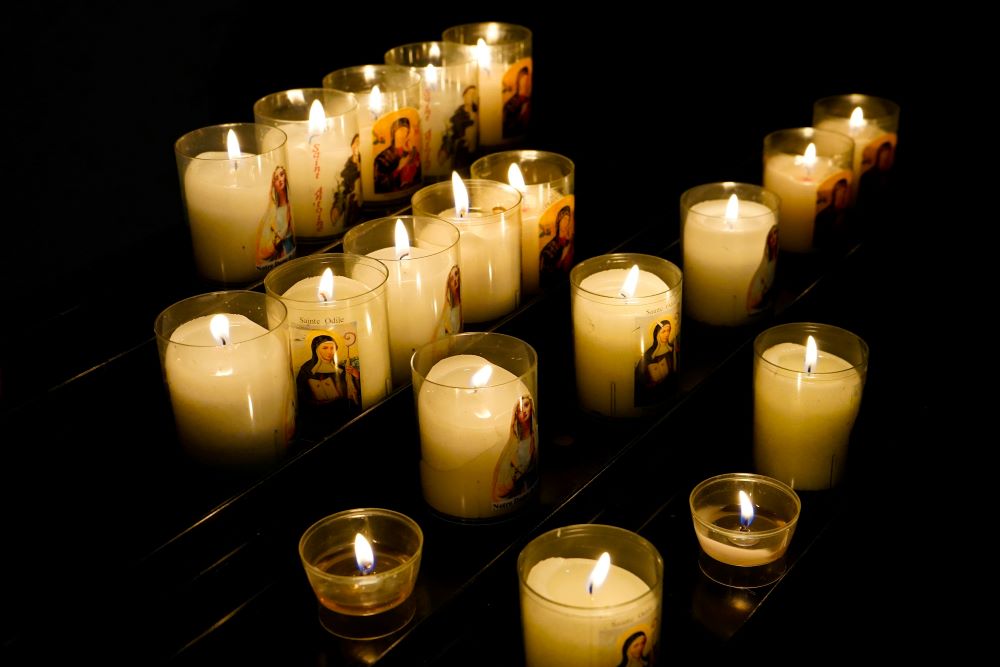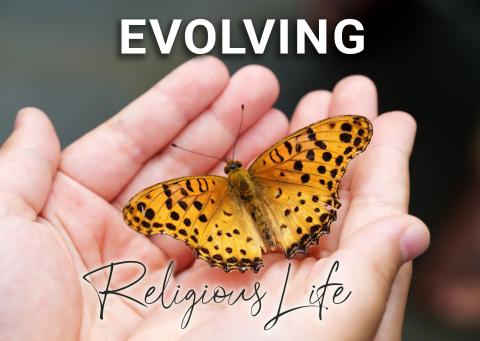
(Unsplash/Meizhi Lang)
Editor's note: Evolving Religious Life, a series from Global Sisters Report, explores how Catholic sisters are adapting to the realities of congregations in transition and new forms of religious life. While we often write about these trends, this particular series will focus more closely on sisters' hopes for the future.

You might think, given the title, that this column will deal with our political situation in the United States, and well, it might. But my intent is to continue the reflections of my two previous columns on "A gift of elder adulthood," with a shift in focus — the younger members of religious congregations. (A word about congregation and community. I use the term "congregation" for the total membership and reserve "community" for the local group. This is not to imply that the whole group is not a community, but to have clarity about which groups I am speaking.)
In the United States, but not in other parts of the world, the average age of women religious is somewhere north of 80 years. Among other things, this means that younger members will experience death more personally and more frequently than those in the immediate past. And the deaths will be of sisters who were the leaders and the "wisdom" figures of the congregations.
What's the cumulative impact of these deaths? Answers vary depending upon the meaning attributed to these deaths and how they are processed. But one thing for sure is there's a need for grieving, both individually and as larger congregations. The remainder of this column will take a brief look at grieving, explore two possible meanings of the deaths of the wisdom figures and suggest some ritual practices.
Mourning and grieving, essential human processes, have been studied by a wide variety of folks, and from them we have learned:
- There is no specific timeline for grieving; each person deals with death and loss differently.
- There is no one way to grieve.
- There are stages in the grieving process that echo the stages in dealing with dying.
- There are necessary tasks to be accomplished in the grieving process if the loss is to be a steppingstone to greater freedom and love.
Too often, people use the stages in the process to see how they are doing. This is an unhelpful approach because we try to fit our experience into the stage rather than explore our experience to learn what it reveals about ourselves and the other. So, we will look at the necessary tasks associated with grieving. The four tasks are:
- Accepting the reality of the loss. That is, we face the fact that the person (congregation) is no longer here and will not return.
- Working through the pain of grief. When we lose someone we love and to whom we are attached, their loss brings with it a wide range of emotions: anger, guilt, fear, depression, sadness, despair, etc. Working through the feelings takes time. It requires us to acknowledge our emotions and the pain, rather than suppressing or avoiding them, in order to work through them.
- Adjusting to our life in which the deceased is missing. There is the psychological, emotional adjustment, but we might have to assume a new role or function that the deceased had performed.
- Finding a continuing connection with the deceased at the same time as starting a new life without them. Our goal is to find an appropriate place for the deceased in our emotional life as we move forward.
Advertisement
Earlier I indicated that a key factor in the death of so many of our older sisters is the meaning we attach to their deaths. Individual meanings, of course, will vary, but two that would be held in common are the diminishment and possible ending of my religious congregation and the loss of wisdom figures. The probable ending of the life of one's religious congregation is a reality that many congregations in the United States face.
Questions abound: "Why is this happening?" "Where did we go wrong?" "What is God doing in all of this?" and so forth. We don't have answers at this point, so it's best to let the questions rest. But the ending of an enterprise to which I have given my life calls into question the meaning of my life. Questions always hold invitations — an invitation each individual sister must search out to find the deeper meaning of her life.
The loss of recognized wisdom figures is a profound loss but doesn't necessarily mean the end of wisdom. We might wonder: Where do we find wisdom now? In our mourning, we need to search for other sources of wisdom. I am reminded of a folk tale that speaks of a longed for one, who was present in their midst, but hidden from sight. This could be true of us. Perhaps we just need new eyes to recognize her presence. The longed for one might even be me!
Remember the tasks of mourning — adjusting to a new life without the deceased--might mean I am called to take on new roles and/or functions — I may become a wisdom figure! Carrying on the wisdom tradition is an excellent way to incorporate our loss in our emotional life as we move forward.
Rituals have their place in grieving and can be an aid in walking the journey. For some people, writing a letter to the deceased can help express feelings that otherwise would go unheeded. What rituals have you found helpful?
What about the place of rituals in the larger congregation? Can they allow us to recognize our losses and walk ahead into a new life without these sisters? Each congregation has practices that function as rituals. One in my congregation, the Sisters of Charity of New York, immediately comes to mind — a candle ceremony at congregational gatherings. It's of relatively recent origin.
At the beginning of each congregational gathering, before we get into the business of the day, the names of each sister who has died since we last gathered are read. As each name is read, a candle (visible to all) is lit, followed by a brief period of silence. The candles remain lit for the whole gathering, reminding us, in a symbolic way, that the sisters are with us here. The practice is a simple expression of the words of St. John Chrysostom, "Those whom we have loved and lost are no longer where they were before. They are wherever we are."
May we all know this reality in the depths of our hearts.







